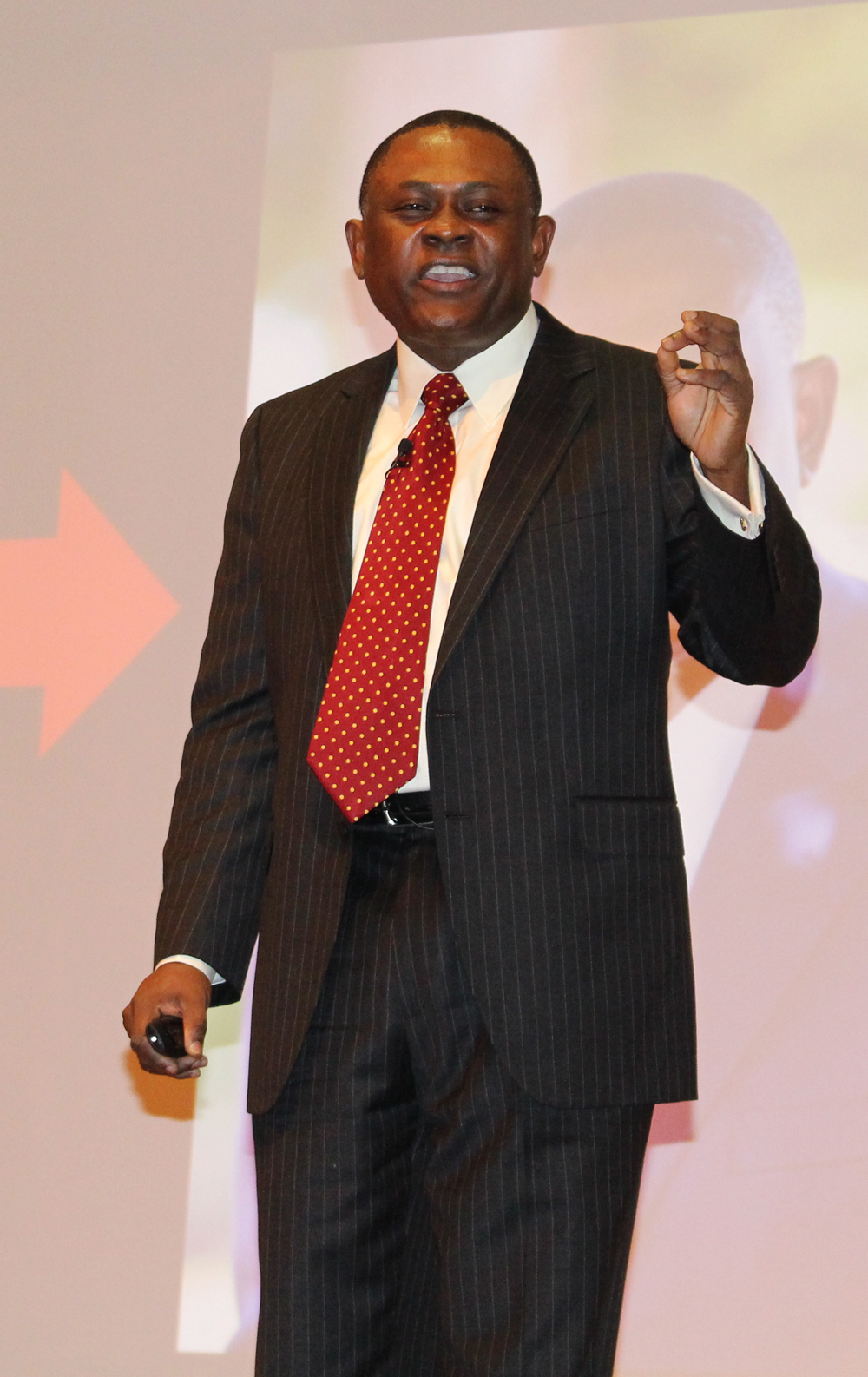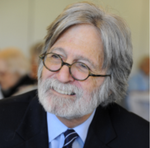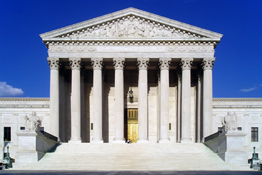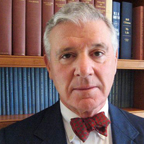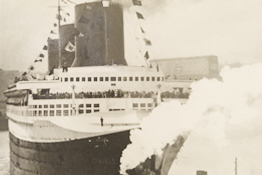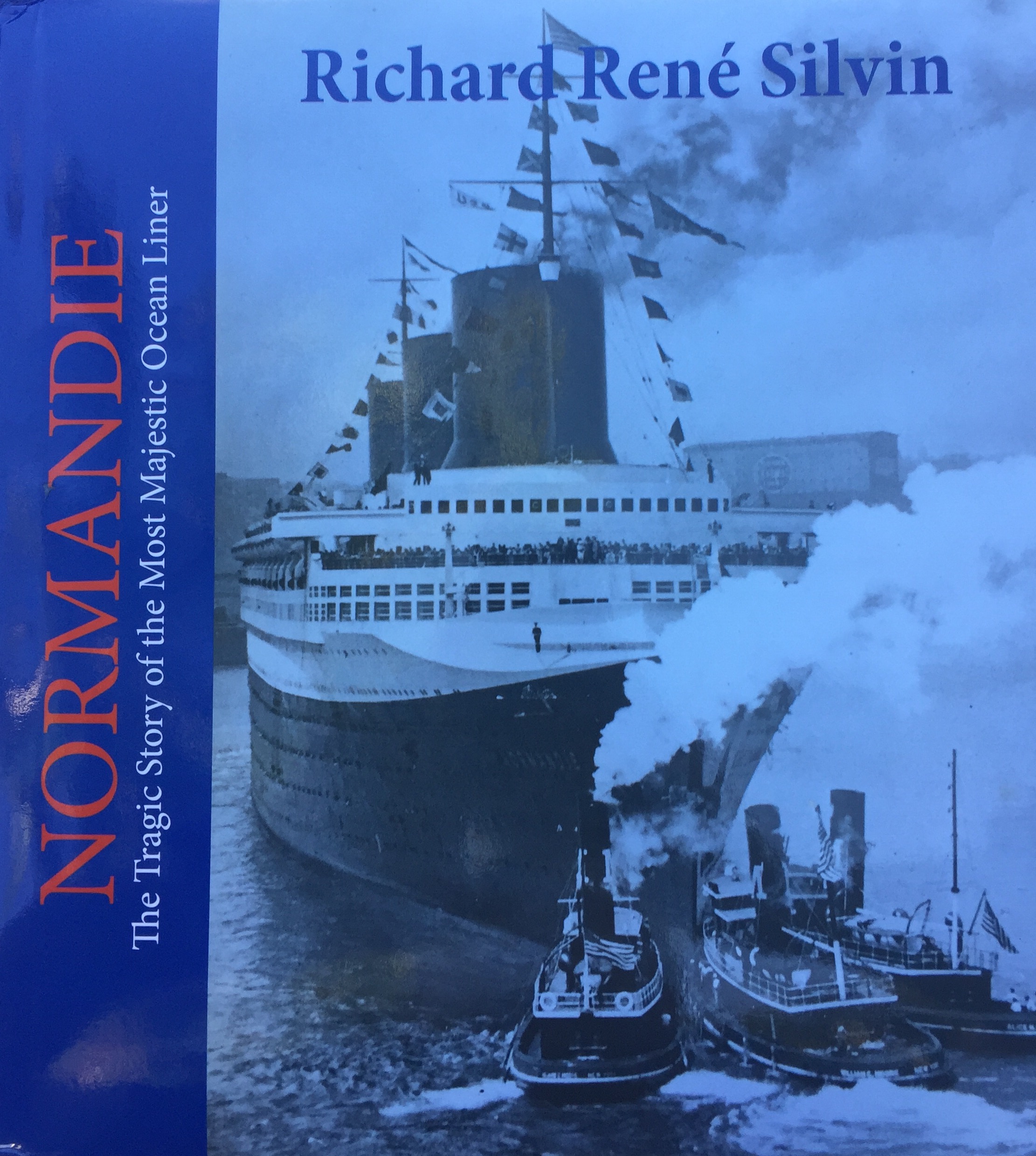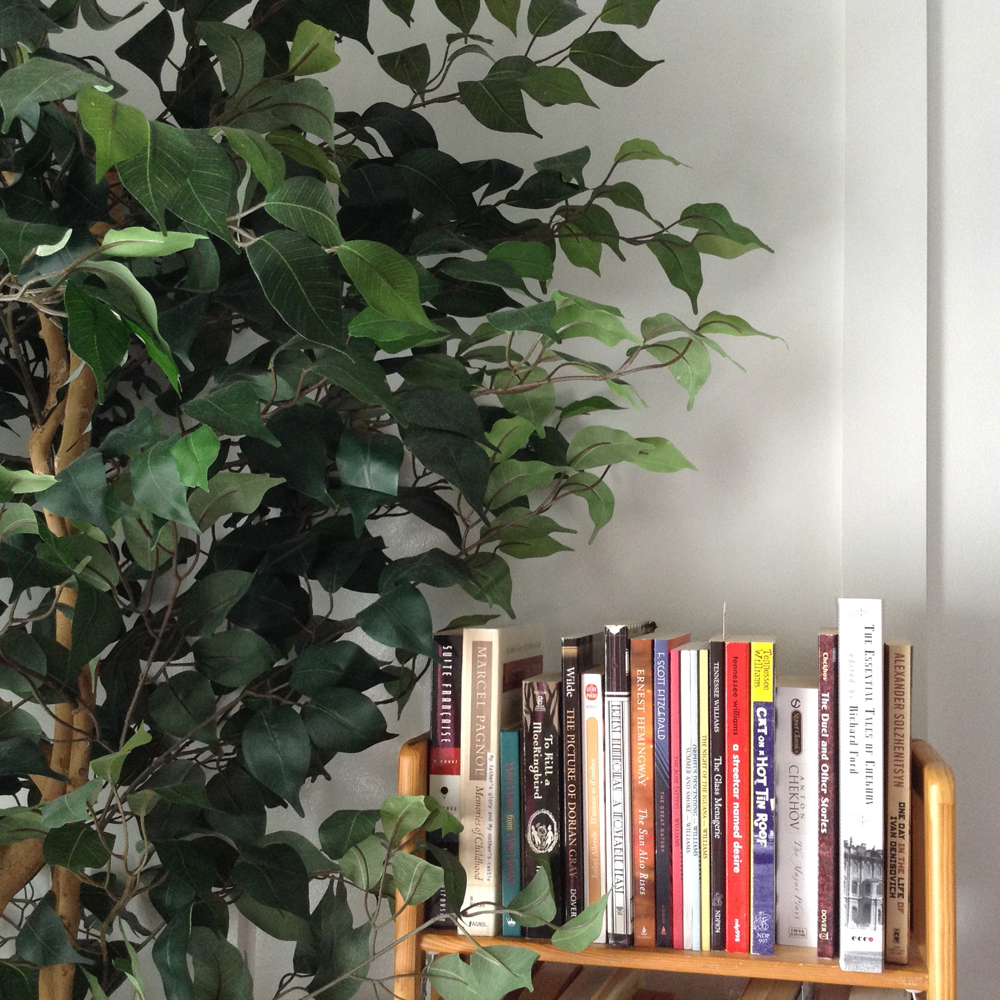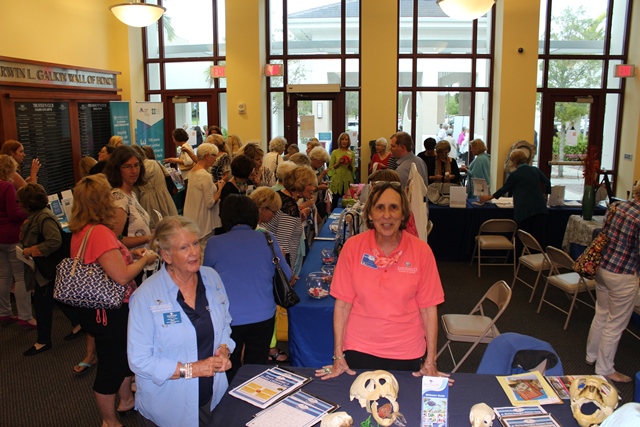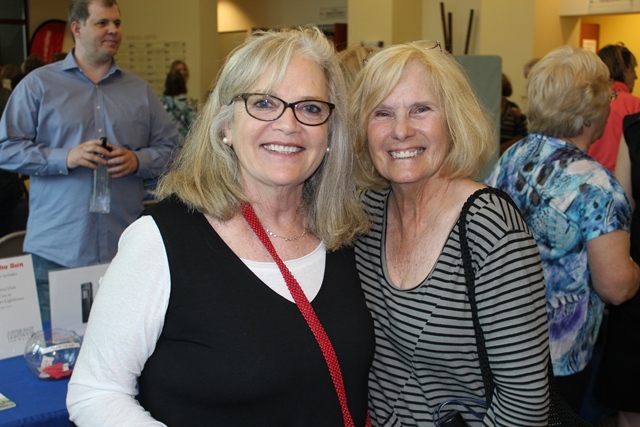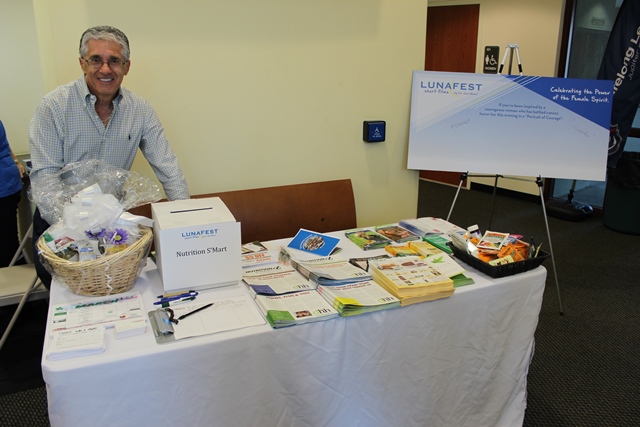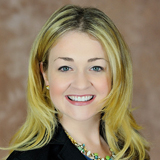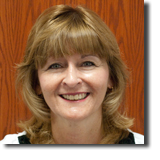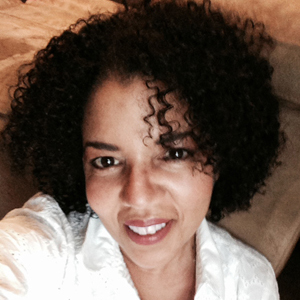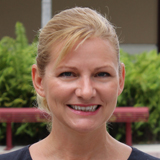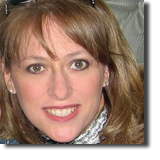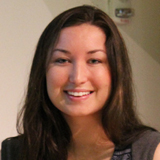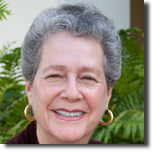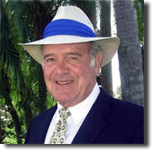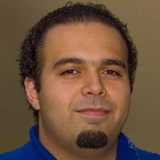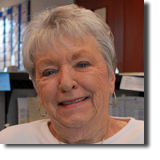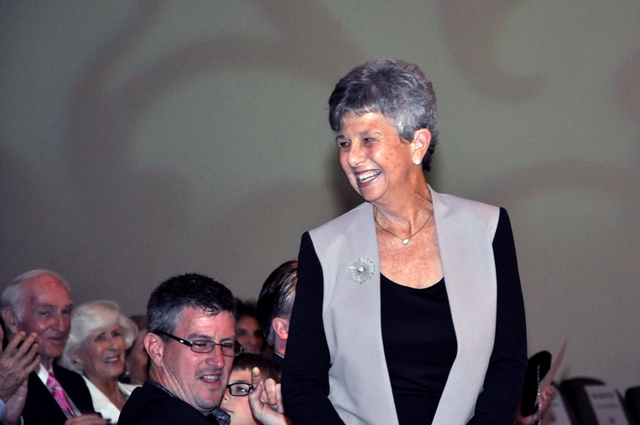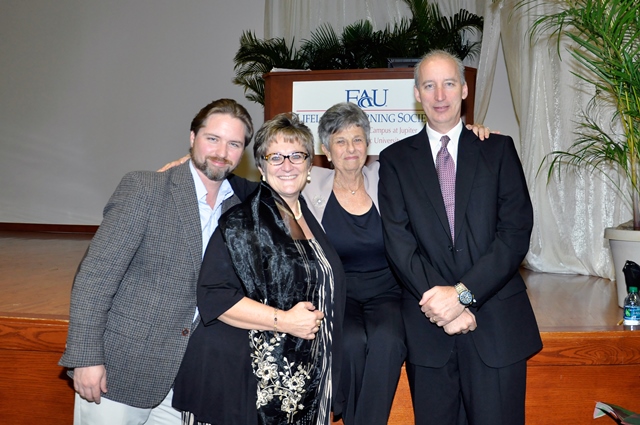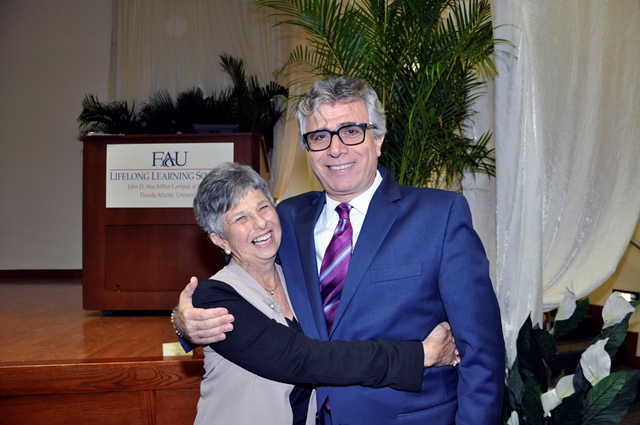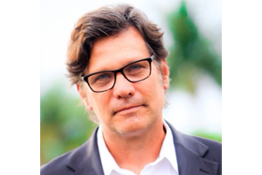
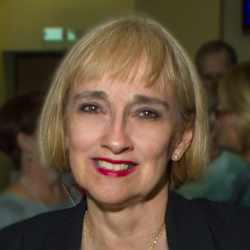 By Sandi Page, Guest Blogger, LLS Student and Volunteer, LLS Jupiter Marketing Committee member
By Sandi Page, Guest Blogger, LLS Student and Volunteer, LLS Jupiter Marketing Committee member

Robert P. Watson, Ph.D.
Our spotlight this week is on Dr. Robert P. Watson, one of our most popular Professors here at FAU LLS, who is also Professor of American Studies at Lynn University, Senior Fellow at the Florida Joint Center for Citizenship and the political analyst for WPTV 5 (NBC). He has published 36 books and hundreds of scholarly articles on topics in American politics and history, and has served on the boards of many scholarly journals, academic associations and presidential foundations. Professor Watson has won numerous awards, including the Distinguished Professor of the Year awards at both FAU and Lynn (twice) and FAU’s Faculty Service award (twice). His recent book, “America’s First Crisis: The War of 1812,” received a 2015 “IPPY” award for book of the year in U.S. history.
While researching to formulate questions for an interview I hoped to do with Dr. Watson (whose lectures I never miss), I happened across his impressive résumé, all 80 pages of it…and not one line was superfluous! Knowing that his hectic schedule would most likely preclude him from participating, I nevertheless, at 1:30 a.m., emailed Dr. Watson an interview request along with my proposed questions. By 8:00 a.m., I had already received his enthusiastic reply and answers to two of the questions with a promise that more would be forthcoming. By 5:00 p.m., our interview was complete, despite the fact that Dr. Watson had also fit in 3 classes, a radio interview, a meeting and a television show that day!
Benjamin Franklin was right when he said, “If you want something done, ask a busy person.”
Oh, did I mention that Dr. Watson also possesses a wicked sense of humor, which has his large LLS audiences laughing uncontrollably as he good-naturedly skewers the antics of political parties to the left and the right as well as the political and historical figures he lectures on?
Laughing while you learn……a lot. What a wonderful education.
Read on to appreciate even more the brilliant mind, generous spirit and fascinating life of
Dr. Robert P. Watson
Did you ever contemplate a completely different career path when you were first starting out?
Yes. I never intended to become a professor. The plan was to be a Foreign Service officer for the State Department, a political aide, a researcher for a policy think tank, or an activist with a progressive cause.
My problem was that I wanted to pursue all these – and several other careers. Then, when I was finishing my Ph.D., it dawned on me that if I became a professor, I could pursue all sorts of interests.
I could write books, consult with politicians, be an analyst for television and news outlets, be an advocate for lots of issues, and, on top of all that, get paid to help preserve historic sites, travel and…….get this, talk about history and politics with impressive audiences at LLS!
You never use notes during your LLS lectures on history and the American political system and you are never without a ready answer (usually accompanied by an amusing historical anecdote) to any of the wide-ranging questions posed by our LLS students during your Q&A sessions. To what do you attribute your ability to maintain such a phenomenal store of information in your head?
I have always thought it ironic that some professors make their students memorize details, dates and quotes for exams when they themselves do not have them memorized. One of the first lectures I ever gave was when I was in high school – I had won some athletic awards and was asked by some community leaders to speak at a function for the city where I lived. My thought was, “Who would want to hear from a kid and what could I possibly say?” So, I memorized several inspiring stories in detail…and it worked. When I finished my Master’s degree, I had the opportunity to lead a seminar at a local military base. I was concerned that no one in uniform wanted to hear from a civilian in his mid-twenties. So, I memorized countless details about the topic at hand – how the economy impacts the military…and it worked. As a result, in 26 years of teaching and after thousands of media interviews and lectures, I have never used a note.
I think if a speaker knows quotes, dates, and details about the people in the stories of history, it helps to bring those people and, therefore, the stories to life.
I also think that if you have a genuine passion for what it is that you are doing, it makes it easy to memorize. I am passionate about history and politics. There is also the responsibility to know one’s topic front and back, up and down.
I attended your excellent series of lectures on the 2012 Presidential Election at LLS Jupiter. Why did you decide not to do a similar series for the 2016 Presidential election? Any regrets now that the race has gone in such surprising directions?
It was a pleasure offering that series. However, I work seven days a week and have been doing so for many years. I simply had to find ways of cutting back on my commitments. It was hard to commit myself to four or eight weeks, so regrettably, I decided to cut back at LLS. It was not an easy decision as I have so many friends that are members.
I have been lecturing on this bizarre campaign for other groups and have been offering media commentary for numerous outlets. It is certainly one for the history books, but not in the way I would have wanted. It has been enormously difficult to watch the media continually fail to ask legitimate questions and demand detailed answers, to watch too many candidates stir up fear and anger, and to observe people falling prey to all this nonsense.
As a nation, we are taking the low road to the highest office. We must demand better of ourselves and our candidates.
Electoral college…..Thumbs up or Thumbs down? If the latter, what would you replace it with?
I have opposed the Electoral College my entire career – since I was in graduate school. It has failed to work properly five times in our history (1800, 1824, 1876, 1888, 2000), it is non-democratic, and few people understand how it works. We should replace it with a popular vote.
At the same time, it is but one of many electoral reforms this country desperately needs…including campaign finance reform, shorter campaigns, better designed ballots, new voting equipment, changes to the primary/caucus system, rethinking how we select delegates, and so on.
Those of us who religiously attend your LLS lectures already know the answer to this question, but for the others, what historical figure do you admire the most and why?
Hmmm…Let me think about that one….Harry Truman! He demonstrated moral courage so many times in making the tough decision, was a visionary with his work on Israel, the Marshall Plan, the Berlin airlift, desegregation, NATO, and so many other issues, and he would rather do what was right and lose than do what was wrong and win.
Truman was an ordinary fellow who rose to extraordinary heights at one of the most critical moments in world history. Wow, what’s not to admire?
I have also always liked Abraham Lincoln, Ben Franklin, Alexander Hamilton, and Eleanor Roosevelt. That would probably be my top five!
Two of your accomplishments that you have shared with us during your lectures specifically stand out in my mind:
– your efforts to educate Florida children about their civic responsibilities;
– your role in bringing the 2012 Third Presidential Debate to Lynn University.
Could you tell us a bit more about these two programs?
I have visited hundreds of schools and classrooms over the past 26 years offering free civic education and history day programs. It is something I have always done and intend to do until either I am unable to or until they don’t want me back.
If you approach the topics of civics and history in the right way with kids, they develop a passion for it or at least some interest in it. I try to put them in the shoes of the people from history (which develops a connection), try to make them laugh, we utilize technology and social media (which they enjoy and it is how they learn), and ask them what they would do if they were there. I also invite them to try and stump me – which they love – and I host mock elections. We have had many tens of thousands of kids vote in these fun elections.
Hosting the Presidential debate at Lynn University was a wonderful experience for our students and the community. The President of Lynn as well as our faculty, staff and students worked their backsides off.
After it was over, numerous reporters, political aides, and debate commissioners told us it was, by far, the best run debate ever.
The key was that we did not simply host a debate. Rather, we used the debate as a vehicle to promote civic awareness! For instance, I hosted over 1,000 area students on campus, developed a comprehensive debate curriculum for schools around the country, held debate “watch parties” for our students, organized a museum-quality debate history exhibit in our library, had debate-themed raffles, trivia contests, parties…you name it, we did it!
You have written 36 books on American politics and history as well as three novels and
hundreds of scholarly articles. Which book was the most challenging to write?
By far, the most difficult project was the current one – The Nazi Titanic. It is the bizarre story of an unknown tragedy from WWII and the Holocaust. Not only was the research challenging, but it was also emotionally draining to write about such an important and tragic event. I felt a sense of responsibility to get the story right and get it out there because, with each passing year, we are losing Holocaust survivors and WWII Vets, and those who perished in this shocking event deserve to have their stories told.
The idea that such a momentous event could remain largely unknown for 70 years is remarkable. Ultimately, the story constitutes the bloodiest hour of the Holocaust, history’s worst instance of friendly fire, the world’s most tragic maritime disaster, and the final major tragedy of WWII.
As a political analyst, you are frequently interviewed on radio and television as well as the print media. What transpired during your most surprising interview?
There are two interviews that I will always remember. One was around midnight after the first Presidential debate in 2012. I had given a few dozen interviews that day and had not slept
in some time…and was exhausted. I had my earpiece in and was “in the field” doing an interview. I saw the anchor in the small screen next to the camera and could hear him through my earpiece saying that they were going live to me for analysis. Suddenly, my earpiece went dead! I could not hear a thing, so I watched the anchor’s lips moving to try and figure out when he stopped talking. When he stopped, I figured it was my turn to answer – but I had no clue what he had asked me. So, I gave the most generic answer possible.
After I finished saying essentially nothing, I saw his eyebrows go up and a look of discomfort on his face. His lips started moving again – but I couldn’t hear anything. So, I said something else generic. Later, I learned that he had asked me two very specific questions, so I must have come across as a knuckle-head. It was embarrassing. I should have simply said that we lost audio – but I was sleep deprived and not thinking clearly.
I offered a lot of commentary the night Osama bin Laden was killed. I was contacted at home and told that something major was happening. Could I come to the TV studio right away and be prepared to stay all night? I agreed. My concern was that it was a tragedy or another terror attack, but we soon found out that President Obama was going to announce that bin Laden was dead. My job was to be the “filler”…that is, I had to talk about bin Laden, terrorism, and related topics until Obama spoke, and then fill afterward throughout the night in between segments with experts and government officials. I had to remember a hundred facts and dates about al-Qaeda, 9/11, the War on Terror, bin Laden, and so on.
Fortunately, I have never been shy and, as my family can tell you, I can talk for forever! It was a very cool experience to have hundreds of people call to say that they listened all night, that people quieted down in bars and restaurants to get the news, and so on. I think we all remember where we were when the news of bin Laden’s death came. People were emotional, celebratory, curious…and it was neat to be able to be a part of those experiences for them.
You often speak about your beautiful wife and children with such affection during your lectures. How do you create opportunities to spend quality time with them given your hectic schedule? How would they describe you?
Well, I don’t fish, don’t hunt, don’t play golf, and don’t go out drinking with the fellas!
I have many hobbies – I swim, play basketball, play music, and so on – but my main “free time” activity is family time. We are lucky in that we like to go out to dinner as a family, jog and swim together…in short, we have similar interests and do them together.
Also, I travel a lot and try to take my family along on many of the trips. If I must do research at the Truman Library, Smithsonian, or Mount Vernon, I take my family along. Or, if I am speaking at a battlefield, museum, or on a cruise, we all go along.
I suppose they’d describe me as funny, a workaholic, history nerd, and their number one cheerleader!
Game Time! 10 Quick Answers to 10 Quick Questions!
– Your favorite Sport? One of my passions in life is playing basketball.
– Favorite Food? Indian and Thai curry. Yum!
– Favorite Movie? Indiana Jones – He was a cool professor!
– Favorite book? Well, not counting my own (!), Stephen Jay Gould’s The Mismeasure of Man changed the way I approached science and academia. But my favorites are my son’s book Tsunami and my daughter’s storybook for kids Fashion Rules.
– Pet Peeve? Arrogance
– Favorite Music? I love all kinds of music.
– Favorite Fun Activity? Going to the pool with my family
– Favorite Travel Destination? Anywhere in Europe…or a National Park
– Dog or Cat Person? Dog
– Early Bird or Night Owl? Night Owl
Do you have a new book in the works?
Yes. I am half-way finished with a book on the Revolutionary War.
Which group is a tougher crowd to lecture to…your undergraduate students at Lynn University or your FAU LLS students?
They are different challenges – the challenge for undergrads is getting them interested in the topic. The challenge for LLS members is that they know everything…so I am always trying to think of new insights and info for them!
You are a former candidate for the United States House of Representatives. Is there another political run for office in your future?
Goodness, no. I plead temporary insanity. I love what I do for a living.
What are your plans for the rest of 2016 and 2017? Have you chosen the subject of your future LLS lectures?
I am trying to finally carve out time for a few book tours. It is something I have always wanted to do, but have never had the time…
Also, after years of focusing on political history, I have been developing more of an interest in military history. I’d like to explore the causes and lessons of warfare. There are still so many compelling and important stories out there…I’m sure a few of them would make good lectures!
Dr. Watson is currently presenting a series of lectures on “The Holocaust at 70: The Stories History Missed” at FAU LLS Jupiter (Tuesdays, 3:30 – 5:00 p.m., April 26, May 3, May 10, May 17, 2016).
Dr. Watson will be signing copies of his new book The Nazi Titanic, which will be available for purchase, immediately following his lecture on Tuesday, May 17, 2016.

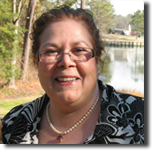 Director of the FAU Lifelong Learning Society in Jupiter
Director of the FAU Lifelong Learning Society in Jupiter

